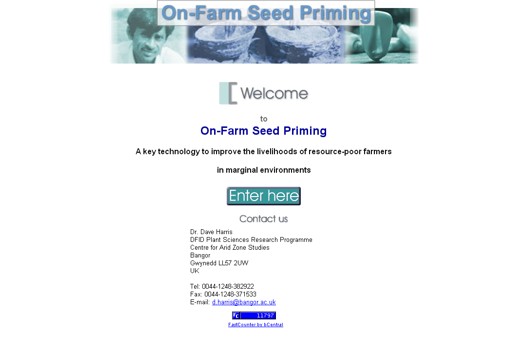PSP RESEARCH OVERVIEW - AGRONOMY (cont.)
Seed priming
In marginal, rainfed areas poor crop establishment often
results from the failure of the crop to emerge quickly and uniformly. Crop
yields are reduced because not enough seeds germinate and the plants that
eventually emerge often grow and are susceptible to drought, pests and disease.
When farmers are faced with patchy seedling establishgment, they may re-sow although this entails severe yield penalties and increased labour and financial costs. Anything that can be done to increase the proportion of seeds that emerge and the rate at which they will do so have a significant impact on food availability and farmers' livelihoods.
PSP projects have demonstrated that simply soaking seeds in water before sowing could increase the speed of germination and emergence, leading to better crop stands, and making seedlings grow more vigorously. These early observations have been the basis for the PSP efforts from 1997 onwards to test, develop and eventually promote seed priming for a wide range of tropical and sub-tropical crops in many developing countries.
Visit the PSP project database and virtual library for further details of seed priming research or the above website.
PSP AT A GLANCE
Website Constructed and Maintained by C.M. Stirling.